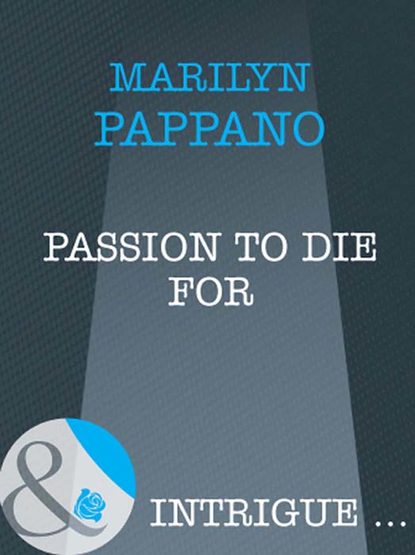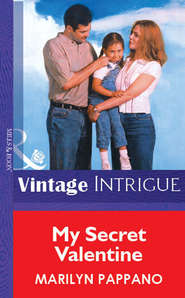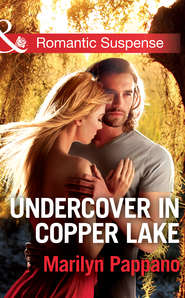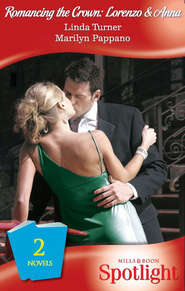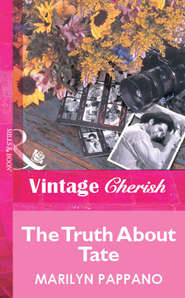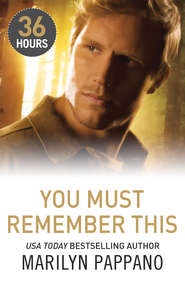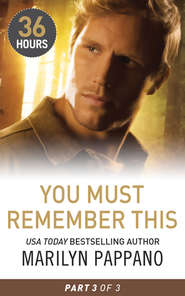По всем вопросам обращайтесь на: info@litportal.ru
(©) 2003-2025.
✖
Passion to Die For
Автор
Год написания книги
2018
Настройки чтения
Размер шрифта
Высота строк
Поля
She’d just gotten back to work when Gina, one of the part-time waitresses, approached. “Hey, Ellie, there’s a woman out front who wants to talk to you.”
“An unhappy customer?” she asked warily. Her food was first-rate and the service even better, but some people always found something to complain about. She comped more meals than anyone could reasonably expect in the name of customer satisfaction.
“Nope. Never seen her before. I told her I’d bring her back here, but she said no, she would wait on the porch.”
Great. In the cold. At least the awning Ellie had installed over the summer would keep her dry. Still, she swung by the office to grab her coat before she skirted through the main dining room to the front door. Unwillingly her gaze strayed to the three tables pushed together in the center of the room, where Tommy Maricci and Sophy Marchand were sitting with Russ and Robbie Calloway and their wives. Their dessert plates were empty, and they were making the restless movements Ellie associated with saying goodbyes.
Tommy would take Sophy home, of course, even though the house that held her shop on the first floor and her apartment on the second was just across the square and around the corner. He would escort her inside; maybe because he was a cop, maybe because his father had raised him right, he was big on that sort of thing. Would he spend the night? Was he sleeping with her?
She didn’t care. She was over him.
A blast of cold hit when she opened the door. A woman waited in the shadows at the end of the porch, her back to Ellie, the hood of her trench coat pulled over her head.
Ellie shrugged into her own coat, belting the wool around her waist, uncuffing the sleeves so they covered most of her fingers. Stopping a few feet from the woman, she said, “Hi. I’m Ellie Chase. I understand you want to talk to me.”
“Ellie. Is that short for something?”
The voice was low, hoarse, probably from years of smoking. Even with the breeze and the fresh scent of rain, Ellie could smell stale cigarette smoke, as if it permeated the woman so thoroughly that it had no choice but to leach into the air surrounding her.
“Ellen,” she said impatiently. “Can I help you with something?”
“Ellen. Hmm. You sure? You don’t look like an Ellen. In fact, you look like…oh, a Bethany to me.”
Wind gusted along the length of the porch. That was the reason Ellie felt so cold inside, why she felt as if her knees might give out. She staggered a step before gripping the back of the nearest chair, her fingers knotting so tightly around the cold wood that they went instantly numb.
“I’m sure,” she said, her voice sounding flat and cold. “I know my own name.”
Slowly the woman turned. The hood cast shadows over the upper half of her face, leaving only an impression in the dim light of aged skin, deep grooves, an overglossed mouth. “So do I,” she said. “I know the name you use now, and I know the name you were born to. Bethany Ann Dempsey.”
She raised one weathered hand to pull the hood back, and Ellie stared. Her stomach knotted, and tremors shot through her, making her shiver uncontrollably inside her coat. It had been fifteen years since she’d last seen the woman, and time hadn’t been kind. Her hair was a dull, lifeless gray, her skin sallow. Too much tobacco, too much booze and too damn much meanness had combined to add an additional fifteen years to her face. The only thing that remained the same as in Ellie’s memories was her eyes. Blue. Cold. Cruel.
“What’s the matter, Beth?” The woman smiled, and that, too, was the same: smug and vicious. “Surprised to see your mama?”
For a moment, a dull haze surrounded Ellie, blocking out sound, cold, rain and wind. Anger, loss and panic welled inside her, each fighting for control, the anger curling her fingers into fists, the panic urging her to run, run right now. That terrified little girl would have run, but she was gone. The woman she’d become wouldn’t give in to emotion.
“As far as I’m concerned, my mother died fifteen years ago.” Shoulders back, Ellie turned and took a few steps toward the door before Martha Dempsey spoke again.
“You’ve made a place for yourself here, haven’t you? Nice restaurant. Nice little blue house. You go to church. You’re a member of the Copper Lake Merchants’ Association. You rub elbows with the rich folks in town. People think you’re something, don’t they? But they don’t know what I know.”
Ellie hovered, frozen in the act of taking a step. After a quavery moment, her foot touched the floor and she pivoted to face Martha, freezing again when the screen door creaked open. Jamie and Russ Calloway came out first, not noticing her, heading directly for the steps. Behind them were Robbie Calloway and Sophy Marchand, lost in conversation, and bringing up the rear were Robbie’s wife, Anamaria, and Tommy.
Half wishing to remain unseen, Ellie knew it wasn’t going to happen. Anamaria was her closest friend in town, and she was sensitive to emotions, conflicts and auras. Her gaze came immediately to Ellie’s, her dark eyes taking in what was probably a fireworks display of auras.
Moving gracefully despite her pregnancy, Anamaria closed the distance between them, smiled at Martha, then wrapped one arm around Ellie. “Dinner was wonderful, as usual, Ellie.” Leaning closer, her mouth brushing Ellie’s ear, she murmured, “If you need me…”
“Thanks.” Ellie squeezed her hand more tightly than she’d intended, too aware that Tommy was waiting, a distinct look of suspicion on his face. All the other times they’d broken up, they’d remained friends, but this time he never smiled at her and never spoke if he could avoid it. This time he’d said it was for good, and though she’d denied it for the first month, finally she believed him.
When Anamaria went back to him at the top of the steps, he was still wearing that look. His gaze met hers for an instant, but he didn’t acknowledge her. Instead, he broke contact, took Anamaria’s arm and escorted her down the wet steps.
“Does she know?” Martha asked, her tone sly and taunting. “Do they?”
People believed she had no family, that her parents were dead and all that was left were distant cousins. They thought she’d been raised in Charleston, where she had, in fact, done a fair amount of growing up, that she’d lived a normal, if somewhat family-deficient, life.
Ironically, Anamaria, whom she’d known the shortest time, had guessed there was more to Ellie than the story she told. But that was none of Martha’s business. Nothing about Ellie was her business.
“How did you find me?”
Martha grinned and lifted one bony shoulder in a shrug. “I’ve got my sources.”
“What do you want?”
Martha felt in her pockets, coming up with a pack of cigarettes and a cheap lighter. Ellie let her shake one out and slide it between her lips, then said, “Don’t smoke here.”
Martha hesitated, hands cupped to protect the lighter’s flame, then slowly lowered it. She left the cigarette in her mouth, though. For forty years she’d talked around one. Lit or unlit didn’t matter. “Your father died four months ago.”
No surprise. No disappointment. No regret. The news meant nothing to Ellie, and that was a sad thing.
“Nothing to keep me in Atlanta anymore.”
Oliver Dempsey may not have amounted to anything as a father, but he’d brought home a steady paycheck, enough to cover the basics: housing, transportation, food, booze, tobacco. He’d resented spending any of that paycheck on a teenage daughter whom he considered pretty much worthless, but he’d taken good care of himself and Martha.
And now she wanted someone else to take care of her.
Ellie wanted to laugh, but was afraid what kind of sound would squeeze through the tightness in her throat. “You want money. From me. Is that it?”
Martha stiffened defensively. “I am your mother.”
“Like hell you are. You gave birth to me, you changed a few diapers and you fed me until I was old enough to feed myself. That doesn’t make you my mother.”
“Don’t you get smart with me—”
“Remember the last time I saw you?” Ellie interrupted. “When I pleaded with you to let me come home? When I was hungry and sleeping in abandoned buildings and I begged you to help me?”
Martha’s expression was contempt tinged with regret. Not because she regretted throwing her teenage daughter out of the house, not because she’d never loved or protected Ellie the way a mother was supposed to, but because her past actions were going to interfere with getting what she wanted now. She was about to be held accountable, and Martha had always hated being accountable.
“You had to learn a lesson,” she said sourly.
“What lesson? That I couldn’t count on my parents? I already knew that. That the next carton of cigarettes and the next case of beer were more important to you than me? I knew that, too. Just what the hell lesson was I supposed to be learning out there?”
“Don’t you cuss at me. I didn’t tolerate it back then, and I won’t now. You won’t disrespect me.”
The urge to laugh bubbled inside Ellie. The idea that she felt anything remotely resembling respect for this woman was ludicrous. If Martha dropped dead in front of her right that moment, she would feel nothing more than relief that such an ugly part of her life had ended.
“You want money,” Ellie said again, her voice flat. “How much?”
Martha smiled, showing teeth in need of care and greed that made her eyes damn near sparkle. “Well, now, it’s hard to say. Like I said, your daddy’s dead. There’s no reason for me to stay in Atlanta, and truth is, it’s a little late in life for me to be starting a new career. I kind of like the idea of retiring, resettling to be close to my girl and the grandbabies she’s sure to give me someday. I looked around that pretty little house of yours, and that back bedroom would suit me fine. I could even help out down here sometimes, you know, welcome customers to our restaurant and chat with them about this and that.”
Ellie’s spine was stiff enough to hurt. There was no way she would ever let Martha move into her house or help out at her restaurant. She’d burn both places down before letting Martha taint them. Drawing on the cold deep inside her, she said, “So you get a better life than you’ve ever known. And what do I get in return?”





